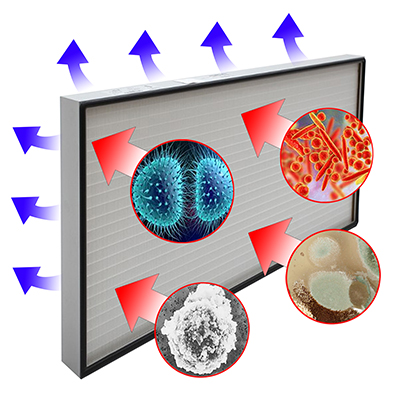HEPA filters are becoming increasingly popular in the world of air filtration due to their high-efficiency rates in capturing small particles. In this article, we’ll discuss the working principle of HEPA filters, their benefits, and some common misconceptions about them. Best True Hepa Air Purifier for pet allergy
What is a HEPA Filter?
HEPA stands for High-Efficiency Particulate Air filter. These filters are made up of a tightly woven network of fibers that trap tiny particles in the air, including dust, pollen, mold spores, pet dander, and even bacteria and viruses. HEPA filters can capture particles as small as 0.3 microns with an efficiency rate of 99.97%.
How Does a HEPA Filter Work?
HEPA filters work by using a combination of three mechanisms to trap particles in the air. The first mechanism is called interception, which occurs when a particle comes into contact with a fiber in the filter and gets stuck. The second mechanism is called impaction, which occurs when a particle is too large to follow the air stream and collides with a fiber in the filter, getting stuck in the process. The third mechanism is called diffusion, which occurs when a small particle collides with a gas molecule and is redirected towards a fiber in the filter, where it gets stuck.
Benefits of HEPA Filters
HEPA (High-Efficiency Particulate Air) filters are designed to capture and remove small particles from the air. Here are some of the benefits of using HEPA filters:
Removes airborne particles: HEPA filters are capable of trapping tiny particles that may be present in the air, including dust, pollen, pet dander, mold spores, and other allergens.
Improves indoor air quality: HEPA filters can improve indoor air quality by reducing the amount of harmful particles in the air. This can help to reduce the risk of respiratory problems, such as asthma and allergies.
Reduces odors: HEPA filters can also help to reduce unpleasant odors in the air by removing particles that contribute to the smell.
Enhances overall health: By removing harmful particles from the air, HEPA filters can help to improve overall health and well-being. They can reduce the risk of respiratory problems, boost the immune system, and improve sleep quality.
Traps harmful particles: HEPA filters can also capture potentially harmful particles, such as bacteria and viruses, which can help to reduce the risk of infections and illnesses.
Reduces the spread of airborne diseases: HEPA filters can be particularly useful in preventing the spread of airborne diseases, such as COVID-19, by capturing the virus particles and preventing them from circulating in the air.
Useful for people with compromised immune systems: People with compromised immune systems, such as those undergoing chemotherapy or organ transplant recipients, may benefit from HEPA filters as they can help to reduce the risk of infections.
Enhances productivity: HEPA filters can also improve productivity in the workplace by reducing the amount of airborne particles, which can lead to better concentration, reduced absenteeism due to illness, and improved overall well-being.
Reduces cleaning efforts: HEPA filters can help to reduce the amount of dust and dirt that accumulates in the environment, which can in turn reduce the amount of cleaning required.
Versatile: HEPA filters can be used in a variety of settings, including homes, offices, hospitals, laboratories, and industrial settings, making them a versatile option for improving air quality. They can be used as stand-alone units or integrated into existing HVAC systems.
In summary, HEPA filters are beneficial in many ways, including improving indoor air quality, reducing the risk of respiratory problems, trapping harmful particles, and enhancing overall health and well-being. Their versatility and effectiveness in a range of settings make them a valuable tool for improving air quality and promoting better health.
Overall, HEPA filters are an effective way to improve indoor air quality and promote better health and well-being. They are particularly useful for people with allergies or respiratory problems, as well as those living in areas with high levels of pollution. 4 Best True Hepa Air Purifier for Cat/Pet Dander Allergies
